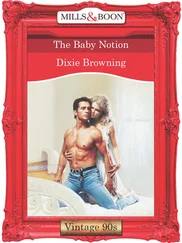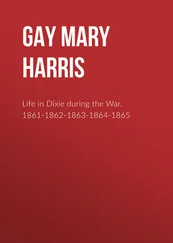Myrta Avary - Dixie After the War
Здесь есть возможность читать онлайн «Myrta Avary - Dixie After the War» — ознакомительный отрывок электронной книги совершенно бесплатно, а после прочтения отрывка купить полную версию. В некоторых случаях можно слушать аудио, скачать через торрент в формате fb2 и присутствует краткое содержание. ISBN: , Жанр: foreign_antique, foreign_prose, Историческая проза, на английском языке. Описание произведения, (предисловие) а так же отзывы посетителей доступны на портале библиотеки ЛибКат.
- Название:Dixie After the War
- Автор:
- Жанр:
- Год:неизвестен
- ISBN:http://www.gutenberg.org/ebooks/41730
- Рейтинг книги:5 / 5. Голосов: 1
-
Избранное:Добавить в избранное
- Отзывы:
-
Ваша оценка:
- 100
- 1
- 2
- 3
- 4
- 5
Dixie After the War: краткое содержание, описание и аннотация
Предлагаем к чтению аннотацию, описание, краткое содержание или предисловие (зависит от того, что написал сам автор книги «Dixie After the War»). Если вы не нашли необходимую информацию о книге — напишите в комментариях, мы постараемся отыскать её.
Dixie After the War — читать онлайн ознакомительный отрывок
Ниже представлен текст книги, разбитый по страницам. Система сохранения места последней прочитанной страницы, позволяет с удобством читать онлайн бесплатно книгу «Dixie After the War», без необходимости каждый раз заново искать на чём Вы остановились. Поставьте закладку, и сможете в любой момент перейти на страницу, на которой закончили чтение.
Интервал:
Закладка:
Woes of friends and neighbours press upon her heart. Almost every home has, like her own, its empty chair, its hungry mouths, its bare larder, though some are accepting relief from the Christian Commission or from Federal officers. Of loved ones in prison, they hear no tidings; from kindred in other parts of the South, receive no sign. There are no railroads, no mail service. In the presence of the conquerors, they walk softly and speak with bated breath. The evening paper publishes threats of arrest for legislators who may come to town obedient to the call Judge Campbell issued with Mr. Lincoln’s approval.
Good Friday was a day of joy and gladness North. From newspapers opened eagerly in radiant family circles men read out such headlines as these: “War Costs Over. Government Orders Curtailing Further Purchase of Arms, Ammunition and Commissary Stores.” “Drafting and Recruiting Stopped.” “Military Restrictions on Trade and Commerce Modified.” Selma, Alabama, with its rich stores of Confederate cotton, was captured. Mr. Lincoln’s conciliatory policy was commented on as “a wise and sagacious move.” Thursday’s stock market had been bullish.
Rachel weeping for her children was comforted because they had not died in vain. Larders were not bare, clothes were not lacking. The fastings and prayers of the devout were full of praise and thanksgiving. For the undevout, Good Friday was a feast day and a day of jollification.
In Charleston, South Carolina, gaping with scars of shot and shell of her long, long, siege, the roses and oleanders and palmettoes strove to cover with beauty the wounds of war, and in their fragrance to breathe nature’s sympathy and faithfulness. Her own desolate people kept within doors. The streets were thronged with a cheerful, well-clad crowd; the city was overflowing with Northern men and women of distinction. In the bay lay Dahlgren’s fleet, gay flags all a-flying. On land and water bands played merrily.
Fort Sumter’s anniversary was to be celebrated. The Union flag was to be raised over the ruined pile by General Robert Anderson, who had lost the fort in 1861. In the company duly assembled were Henry Ward Beecher, Theodore Tilton, William Lloyd Garrison, Rev. Dr. Storrs. Mr. Beecher uttered words of kindly sentiment towards the South. He gave God thanks for preserving Lincoln’s life, accepting this as a token of divine favor to the Nation. Dr. Storrs read: “‘When the Lord turned again the captivity of Zion, we were like them that dream.’” The people: “‘Then was our mouth filled with laughter and our tongue with singing.’” And so on through the 126th Psalm. Then: “‘Some trust in chariots and some in horses, but we will remember the name of the Lord our God.’” And: “‘They are brought low and fallen, but we are risen and stand upright.’”
“The Star-Spangled Banner” was sung, and the guns of Dahlgren’s fleet thundered honours to the Stars and Stripes, which, rising slowly and gracefully, fluttered out in triumph against the Southern sky. At sunset, guns boomed again, proud signal to the ending of the perfect day. The city, silent and sad as far as its own people were concerned, rang with the strangers’ joyaunce. Social festivities ruled the hour. General Gillmore entertained at a great banquet. The bay was ablaze with fireworks; all forts were alight; the beautiful Sea Islands, whose owners roamed in destitute exile, gleamed in shining circle, the jewels of the sea.
The 14th was a red-letter day in the National Capital. Everything spoke of victory and gladness. Washington held the two idols of the North – Lincoln and Grant. It was Mr. Lincoln’s perfect hour. He went about with a quiet smile on his face. The family breakfast at the White House was very happy; Captain Robert Lincoln was visiting his parents. General Grant was present at the Cabinet meeting during the forenoon, Mr. Lincoln’s last. These are some of the President’s words:
“I think it providential that this great rebellion is crushed just as Congress has adjourned and there are none of the disturbing elements of that body to hinder and embarrass us. If we are wise and discreet we shall reanimate the States and get their governments in successful operation with order prevailing, and the Union reëstablished before Congress comes together in December. I hope there will be no persecution, no bloody work, after the war is over. No one need expect me to take any part in hanging or killing these men. Enough lives have been sacrificed. We must extinguish resentment if we expect harmony and Union. There is too great a disposition on the part of some of our very good friends to be masters, to interfere with and dictate to these States, to treat the people not as fellow-citizens; there is too little respect for their rights.” He made it plain that he meant the words of his second inaugural address, hardly six weeks before, when he promised that his mission should be “to bind up the wounds of the Nation.”
“Very cheerful and very hopeful,” Mr. Stanton reported, “spoke very kindly of General Lee and others of the Confederacy, and of the establishment of the Government of Virginia.” Also, he spoke of the state government in Louisiana, and that which he had mapped out for North Carolina. General Grant was uneasy about Sherman and Johnston. The President said: “I have no doubt that favourable news will come. I had a dream last night, my usual dream which has preceded every important event of the war. I seemed to be on a singular and indescribable vessel, always the same, moving with great rapidity toward a dark and indefinite shore.”
He did not know that on that day Sherman was writing Johnston, “I am empowered to make terms of peace.” But he knew he had so empowered Sherman. I can imagine that through his heart the refrain was beating: “There will be no more bloodshed, no more devastation. There shall be no more humiliations for this Southern people, and God will give it into my hands to reunite my country.”
He went for a long, quiet drive with his wife. “Mary,” he said, “we have had a hard time of it since we came to Washington; but the war is over, and with God’s blessing we may hope for four years of peace and happiness. Then we will go back to Illinois and pass the rest of our days in quiet.” He longed for quiet. The Sabbath before, while driving along the banks of the James, he said: “Mary, when I die, I would like to lie in a quiet place like this,” and related a dream which he felt to be presage of death.
Sailing on the James, he read aloud twice, and in a manner that impressed Charles Sumner, who was present, this passage from Macbeth:
“‘Duncan is in his grave;
After life’s fitful fever he sleeps well;
Treason has done his worst: nor steel, nor poison,
Malice domestic, foreign levy, nothing,
Can touch him further.’”
He was going, safe and whole, from the land of “rebels” to Washington. “We have had a hard time in Washington, Mary.” Read Sherman’s “Memoirs,” and see what little liking great Federal generals had for journeys to Washington; how for peace and safety, they preferred their battle-fields to the place where politicians were wire-pulling and spreading nets.
The conclusion to his perfect day was a box in Ford’s Theatre, his wife and a pair of betrothed lovers for company; on the stage Laura Keene in “Our American Cousin.” The tragic sequel is indelibly impressed on the brain of every American – the people leaning forward, absorbed in the play, the handsome, slender figure of young Wilkes Booth moving with easy, assured grace towards the President’s box, the report of the pistol, the leap of Booth to the stage, falling as the flag caught his foot, rising, brandishing his weapon and crying: “ Sic Semper Tyrannis! ”, his escape with a broken ankle through the confused crowds; the dying President borne out to the boarding-house on Tenth Street.
Читать дальшеИнтервал:
Закладка:
Похожие книги на «Dixie After the War»
Представляем Вашему вниманию похожие книги на «Dixie After the War» списком для выбора. Мы отобрали схожую по названию и смыслу литературу в надежде предоставить читателям больше вариантов отыскать новые, интересные, ещё непрочитанные произведения.
Обсуждение, отзывы о книге «Dixie After the War» и просто собственные мнения читателей. Оставьте ваши комментарии, напишите, что Вы думаете о произведении, его смысле или главных героях. Укажите что конкретно понравилось, а что нет, и почему Вы так считаете.












